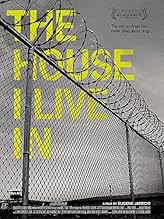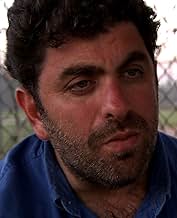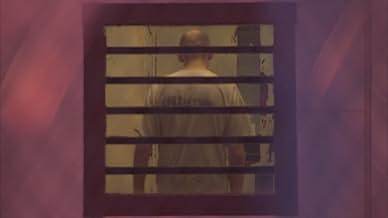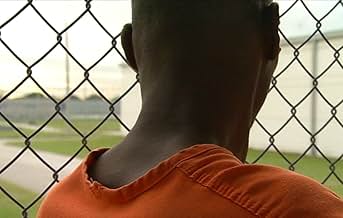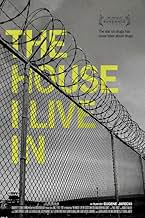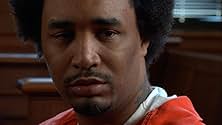Les Etats-Unis et la drogue - Une guerre sans fin
Ajouter une intrigue dans votre langueFrom the dealer to the narcotics officer, the inmate to the federal judge, a penetrating look inside America's criminal justice system, revealing the profound human rights implications of U.... Tout lireFrom the dealer to the narcotics officer, the inmate to the federal judge, a penetrating look inside America's criminal justice system, revealing the profound human rights implications of U.S. drug policy.From the dealer to the narcotics officer, the inmate to the federal judge, a penetrating look inside America's criminal justice system, revealing the profound human rights implications of U.S. drug policy.
- Réalisation
- Scénario
- Casting principal
- Récompenses
- 4 victoires et 3 nominations au total
- Self - Harvard University
- (as Prof. William Julius Wilson)
- Self - Providence Police
- (as Lt. Glendon Goldsboro)
- Self - Commanding Officer, Narcotics
- (as Lt. Michael Correia)
- Self - Physician, Addiction Expert
- (as Dr. Gabor Maté)
- Self - U.S. Federal Judge
- (as Hon. Mark Bennett)
- Self - Maurice's Lawyer
- (as Jim McGough)
- Self - Lexington Corrections Center
- (as Warden Eric Franklin)
- Self - Harvard University
- (as Prof. Charles J. Ogletree)
Avis à la une
It's not an anti-corporate rant with a clear villain to rally against. I left thinking that there was enough material and story there to easily fill a mini-series or a Ken Burns style documentary without getting preachy or creating fatigue.
It has enlightening and entertaining moments, but there are many flaws in the storytelling. Many characters are introduced, many of which with too much or not enough background, and seem to float around their promised purpose without really landing at a point or purpose. (Given the ending theme of the work, perhaps this is intentional.)
David Simon's incredibly powerful monologues bring a saving grace to moments in the film that tend to struggle, especially moments where the director awkwardly inserts himself into the film.
Unlike a lot of similar works, you could probably take your Republican parents to see it without the evening being automatically ruined.
Unlike almost every other advocacy piece I've seen, it achieves its goal of starting a conversation, rather than ending one.
America has more of its citizens behind bars than in any other nation on the planet, and we presently have more Blacks incarcerated than were slaves in the Confederate States of America during the 1850's. And, America's misguided approach to the issue of illegal drugs is the single most important reason why so many of us are in prison.
These are only a couple of startling revelations from Eugene Jarecki's riveting documentary about America's terribly misguided War On Drugs. Clearly we have chosen to solve a health issue by creating a ridiculous legal and political policy based on an oxymoron called, 'the criminal justice system'. Racial scapegoating and a system based on 'prisons for profit' have allowed us to spend billions, yet more people use illegal drugs today than when the drug war first began. And, the quality of these drugs is infinitely superior.
No one, not the authorities or the criminals, seem to be satisfied with the status quo, and readily admit that the whole affair is an abject failure. But, the film shows how this suicidal social policy remains locked in place with no end in sight. Politicians campaign on making this nation drug free, and addiction rates soar and we can't seem to build jails quickly enough to fill them.
If there was ever a solution that was immeasurably worse than the problem, it is The War On Drugs. ABSOLUTE MUST SEE
Against this background, Eugene Jarecki has written, produced and directed this striking documentary examining the impact of the war on drugs in America. Starting with the black woman who was his childhood nanny, he interviews an eclectic cast of characters with different experiences of the problem: the drug dealer, the policeman, the judge, the prison guard, the life prisoner with no chance of parole, and – most eloquent of all – the creator of the television series "The Wire".
Until recently, the drug problem has been seen by many Americans as a black and brown issue and the strong emphasis on enforcement measures, with a growing use of mandatory minimum sentences, has led to a swollen ethnic prison population that, for many whites, has swept the problem off the streets and out of sight. But the availability of different drugs and the loss of manufacturing jobs has led to more white, working class men being caught up in this destruction of both personalities and communities. So, at its core, this is not an issue of ethnicity but one of poverty.
The film argues that the policies of the last four decades have failed and need to be fundamentally rethought. Drug use should be considered as less an issue of criminal justice and more a matter of public health. Many drug users are not evil or selfish but victims of poverty and deprivation who are trying to find some income where there is little employment and some solace when life is so miserable.
This is a stunning documentary that raises profound issues – and not just for Americans. It will not be an easy film to see at the cinema, so catch it on television (as I did) or buy or rent it.
The filmmakers seamlessly describe the complexities that underly the drug war and mass incarceration. Then they show the devastating unintended consequences of this misguided policy approach. Finally, they raise important questions that will help to craft a new way forward.
I am going to do my part to get as many people that I can to see this film. I'm posting it on Facebook, I'm writing reviews, and I'm telling people about it in my capacity as a trainer in child welfare.
The filmmakers deserve a huge thank you for calling out the ugly truth of the drug war in a way that we can understand it, and do something about it.
There's a lyric I remember that says "I hate it when they tell us how far we came to be - as if our peoples' history started with slavery." Well, the history of subjugating minorities has not ENDED with slavery either, and retrospective condemnation of racism serves the purpose to perpetuate the racism embedded and invested in our country today.
The most important mistake is to confuse failure with success in regards to the apparent shortcomings of our establishment. I again use the example of public schools because the recent documentary "Waiting for Superman" did a fantastic job in addressing the "failures" of schools to educate children. It takes a book like James Lowen's Lies My Teacher Told Me to recognize the grand success of our school's indoctrination process: to teach obedience, not intelligence. It takes a documentary like The House I Live In to vocalize the airtight success of our administration in conducting the 41 years' drug war.
Logic should compute. If more money has been spent (a trillion dollars since the '70s,) the prison population has skyrocketed (2.4 million people incarcerated) and no progress has been made in keeping drugs off the streets, (similarly with our schools, with reform after reform we continue to perform beneath the feet of most industrialized countries,) you have to start looking at things a little differently. It is hard to see the exit of the maze when walking within its walls. This documentary helps to see things from the outside.
This film brings to light a lot of revealing facts that have been swept under the rug, like how opium wasn't an issue until Chinese started climbing the success latter in San Francisco, or how the police in border states can directly siphon the money from drug busts to reward their outfit. Mostly, it encourages a comparison between the way minorities have been apprehended with drug abuse and the apprehension of whites (who hold equal if not higher drug abuse statistics but make up a minority of the prison population.) And it encourages comparison between past, mass scale subjugation (often with eventual extermination) and, to quote the film, the slow-motion holocaust happening in our own country.
It recognizes the drug epidemic as an economic issue and a medical issue, not a racial issue. It recognizes the drug WAR as the glaring rash of vibrant racism, and the brutal front of a class war in a society where profits come first, human beings second. More to this point, it eludes to the country's prime motivation, net gain and increased GDP, and the plethora of companies from Sprint Mobile to GM to privatized prisons such as CCA, all of whom depend on the drug war to maintain stock value.
To quote ousted investigative journalist and ex-LAPD narcotics officer Michael Ruppert, "A snake eating its own tail is not nutritious."
Though it is outside the periphery of the film's focus and beyond the pale even for a documentary of this substance, the issue of international drug trafficking, and facilitation it has received, at times, from both the financial sector and intelligence agency of our country, was never brought to light in this film. Despite whether this topic is to be written off as conspiracy theory or submitted for further analysis, a film that introduces our economy's dependence on drug dependence and the targeting of minorities in an everlasting drug war, has a duty to at least address the controversy. I suggest raising the question on discussion boards and at Q&As, as my screening was lucky enough to have.
We live in a country that is infested with racism, now as much as any other time. Our economy depends on it, and the drug war has fertilized it. It is time to end it.
Le saviez-vous
- Citations
Herself - Author, The New Jim Crow: You know, in any war, you've got to have an enemy, and when you think about impact, particularly on poor people of color, there are more African-Americans under correctional control today in prison or jail, on probation or parole, than were enslaved in 1850, a decade before the Civil War began. And that's something we haven't been willing to look in the mirror and ask ourselves, "what's really going on?"
- ConnexionsEdited into Independent Lens: The House I Live In (2013)
- Bandes originalesGrandma's Hands
Written by Bill Withers
Published by Songs of Universal, Inc. on behalf of Interior Music Corp.
Performed by Bill Withers
Courtesy of Columbia Records
By arrangement with Sony Music Licensing
Meilleurs choix
- How long is The House I Live In?Alimenté par Alexa
Détails
- Date de sortie
- Pays d’origine
- Sites officiels
- Langue
- Aussi connu sous le nom de
- The House I Live In
- Lieux de tournage
- New Haven, Connecticut, États-Unis(Interview)
- Sociétés de production
- Voir plus de crédits d'entreprise sur IMDbPro
Box-office
- Montant brut aux États-Unis et au Canada
- 210 752 $US
- Week-end de sortie aux États-Unis et au Canada
- 16 453 $US
- 7 oct. 2012
- Montant brut mondial
- 219 159 $US
Contribuer à cette page






